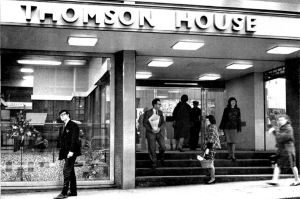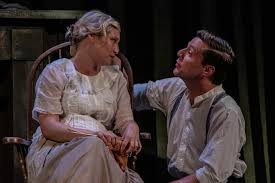Thirty years ago I worked as a reporter for Newcastle’s Evening Chronicle newspaper. Although I started off as a general reporter it didn’t take long before I’d cornered the market in reviewing indie rock and pop concerts. I’d attend at least one gig at week, usually at the city’s Riverside venue which was then on Melbourne Street. Afterwards I’d scamper home to scribble down thoughts and go to bed. The next morning I’d be in the office by 7am to submit my review or I’d phone through my words for dictation by a copy typist before the first edition of the newspaper went to press at around 9.45am.

Ah them were the days! Things have changed since then. The newspaper lost the “Evening” from its title and has moved out of the vast building it once occupied in Groat Market. I used to love that building filled with journos, printers, secretaries, kitchen staff in the subsidised canteen, the advertising department plus couriers, and members of the public coming and going through the front door.
Journalism and arts reviewing have changed so much over the past three decades. I no longer expect a fee for writing a review of a play or a gig but I derive pleasure from writing reviews or blog reviews for this site. I don’t get paid for these reviews but then I don’t have to file copy to a deadline. I can allow the theatrical or musical experience to filter through my brain for a few days.

And that’s what I’ve been allowing to happen since attending the press night of When The Boat Comes In Part 2: The Hungry Years by Peter Mitchell at South Shields’ Customs House last Friday.
Like the Evening Chronicle, the title When The Boat Comes In stirs fond memories for those of us old enough to remember the TV series of the same name starring James Bolam as Jack Ford and written by Peter Mitchell’s father, James. At its peak the weekly TV series achieved an audience of over 15 million. That’s more than a quarter of the population of the UK back in the 1970s. Quite a feat.
I was humming the TV series’ distinctive theme tune when I walked into the Customs House last Friday. As I sat with a drink reading the play’s programme, a man and woman approached and asked if they could share my table. Turns out they are the current Mayor and Mayoress of South Tyneside and we enjoyed a delightful 45 minutes discussing mayoral chains and duties as well as reminiscing about the old days. I told Norman and Jean about the changes in journalism and Norman told me about his younger days down the local pit and in the army. His previous jobs matched those of the evening’s protagonist Jack Ford (played by Jamie Brown) but that’s where the similiarities end. Mayor Norman is no Jack the Lad.
So what about the play set in the mythical Gallowshield almost a century ago?
The play picks up the story of battle-hardened charmer Sgt Jack Ford following his shotgun wedding to his best friend’s sister. Jamie Brown captures Jack’s passion, frustration and ambition perfectly and I thought his acting was matched by all the cast. Several of the actors play dual roles and this works well to highlight the similarities and differences between the haves and the have nots in society. An example is Steve Byron playing suspicous and embittered former miner Bill Seaton plus the well-heeled Horatio Manners.

The play’s set flowed in front of our eyes. We were taken on a journey through the homes, pubs and shops in Gallowshield and into the opulent home of Lady Jessica Croner. The use of music and song was used to great effect and as the cast bowed to our applause, I reflected on the performance. I’d witnessed actors and production staff working in perfect harmony.
The performances plus sound, lighting and direction highlighted the script’s timeless themes of lust, deception, greed, hunger, faith and love. The characters’ differing responses to politics and money remind us that nothing much has changed in the past century since the fictional Jack Ford came back from war and the 50 years since James Bolam walked in his shoes.
I’d like to make an aside about alcohol. I know the play’s writer Peter Mitchell is the Chief Executive of the Road to Recovery Trust which runs the George Street Social cafe in Newcastle and 12 step recovery programmes for addicts. Alcohol is not so much a theme but rather a non-speaking character in the play. Most of the characters respond to alcohol in one way or another. I felt like I was being left to make up my own mind about drinking rather than being preached at.
So it’s fulsome praise from me to Director Katy Weir and her actors and staff for this production. It is a Play for Today rather than a nostalgic stroll down memory lane. Go and see it.